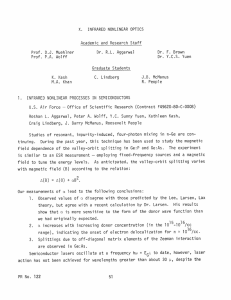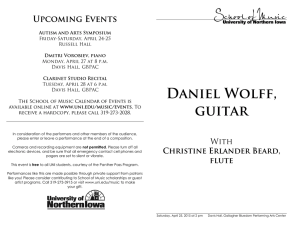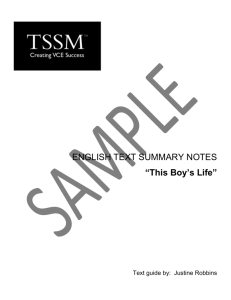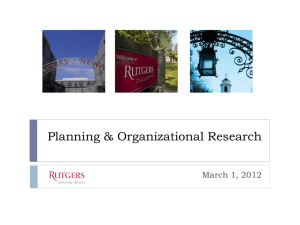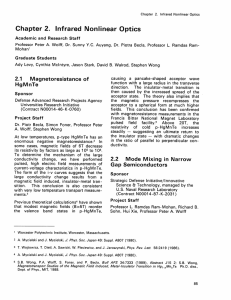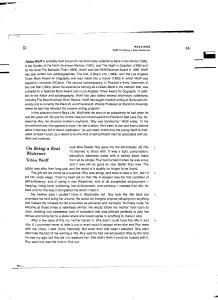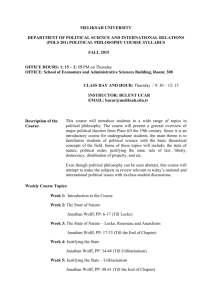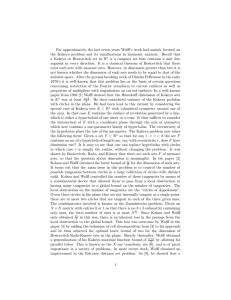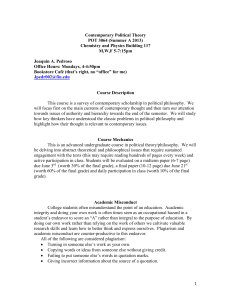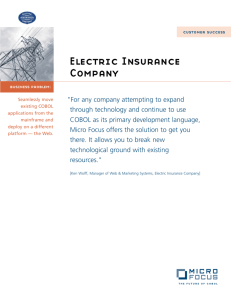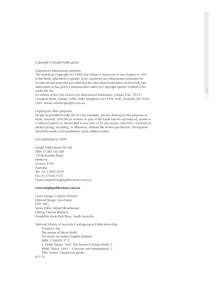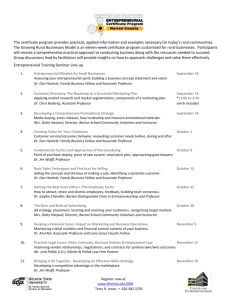Michael Finnissy Beat Generation Ballads
advertisement
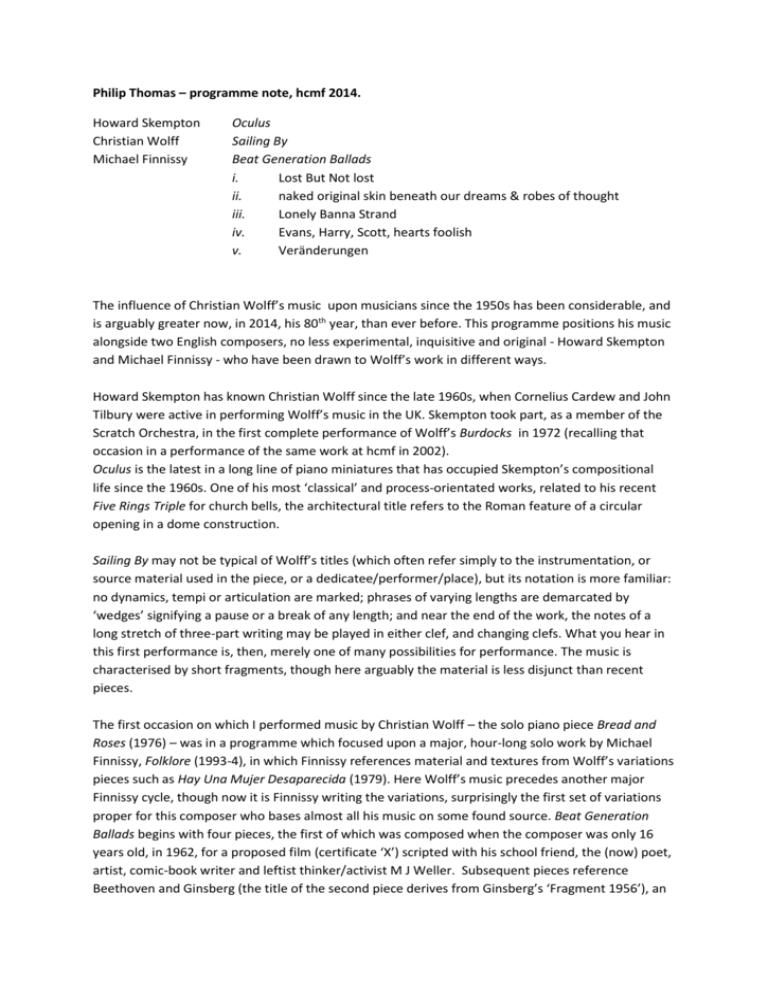
Philip Thomas – programme note, hcmf 2014. Howard Skempton Christian Wolff Michael Finnissy Oculus Sailing By Beat Generation Ballads i. Lost But Not lost ii. naked original skin beneath our dreams & robes of thought iii. Lonely Banna Strand iv. Evans, Harry, Scott, hearts foolish v. Veränderungen The influence of Christian Wolff’s music upon musicians since the 1950s has been considerable, and is arguably greater now, in 2014, his 80th year, than ever before. This programme positions his music alongside two English composers, no less experimental, inquisitive and original - Howard Skempton and Michael Finnissy - who have been drawn to Wolff’s work in different ways. Howard Skempton has known Christian Wolff since the late 1960s, when Cornelius Cardew and John Tilbury were active in performing Wolff’s music in the UK. Skempton took part, as a member of the Scratch Orchestra, in the first complete performance of Wolff’s Burdocks in 1972 (recalling that occasion in a performance of the same work at hcmf in 2002). Oculus is the latest in a long line of piano miniatures that has occupied Skempton’s compositional life since the 1960s. One of his most ‘classical’ and process-orientated works, related to his recent Five Rings Triple for church bells, the architectural title refers to the Roman feature of a circular opening in a dome construction. Sailing By may not be typical of Wolff’s titles (which often refer simply to the instrumentation, or source material used in the piece, or a dedicatee/performer/place), but its notation is more familiar: no dynamics, tempi or articulation are marked; phrases of varying lengths are demarcated by ‘wedges’ signifying a pause or a break of any length; and near the end of the work, the notes of a long stretch of three-part writing may be played in either clef, and changing clefs. What you hear in this first performance is, then, merely one of many possibilities for performance. The music is characterised by short fragments, though here arguably the material is less disjunct than recent pieces. The first occasion on which I performed music by Christian Wolff – the solo piano piece Bread and Roses (1976) – was in a programme which focused upon a major, hour-long solo work by Michael Finnissy, Folklore (1993-4), in which Finnissy references material and textures from Wolff’s variations pieces such as Hay Una Mujer Desaparecida (1979). Here Wolff’s music precedes another major Finnissy cycle, though now it is Finnissy writing the variations, surprisingly the first set of variations proper for this composer who bases almost all his music on some found source. Beat Generation Ballads begins with four pieces, the first of which was composed when the composer was only 16 years old, in 1962, for a proposed film (certificate ‘X’) scripted with his school friend, the (now) poet, artist, comic-book writer and leftist thinker/activist M J Weller. Subsequent pieces reference Beethoven and Ginsberg (the title of the second piece derives from Ginsberg’s ‘Fragment 1956’), an Irish rebel protest song (‘Lonely Banna Strand’) and the piano playing of Bill Evans and his bassist Scott leFaro. These pieces then provide the material for a set of variations which in turn refer to a typically eclectic range of variations by other composers: Webern (op.27), Bach (‘Goldberg’) and Beethoven (C minor set).
